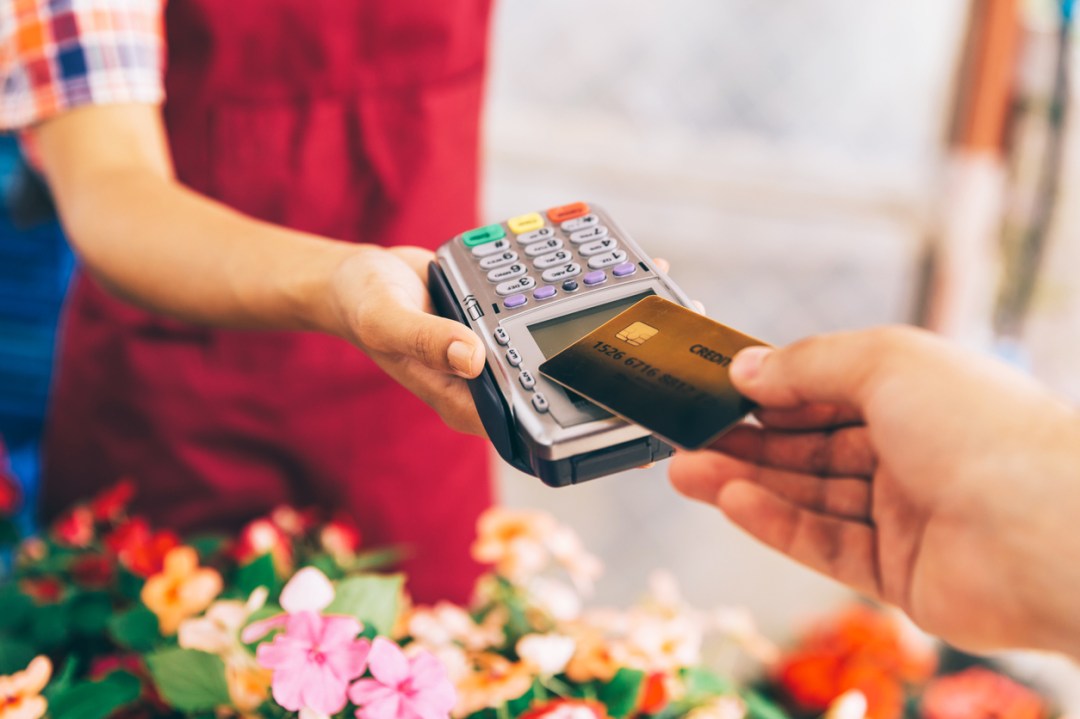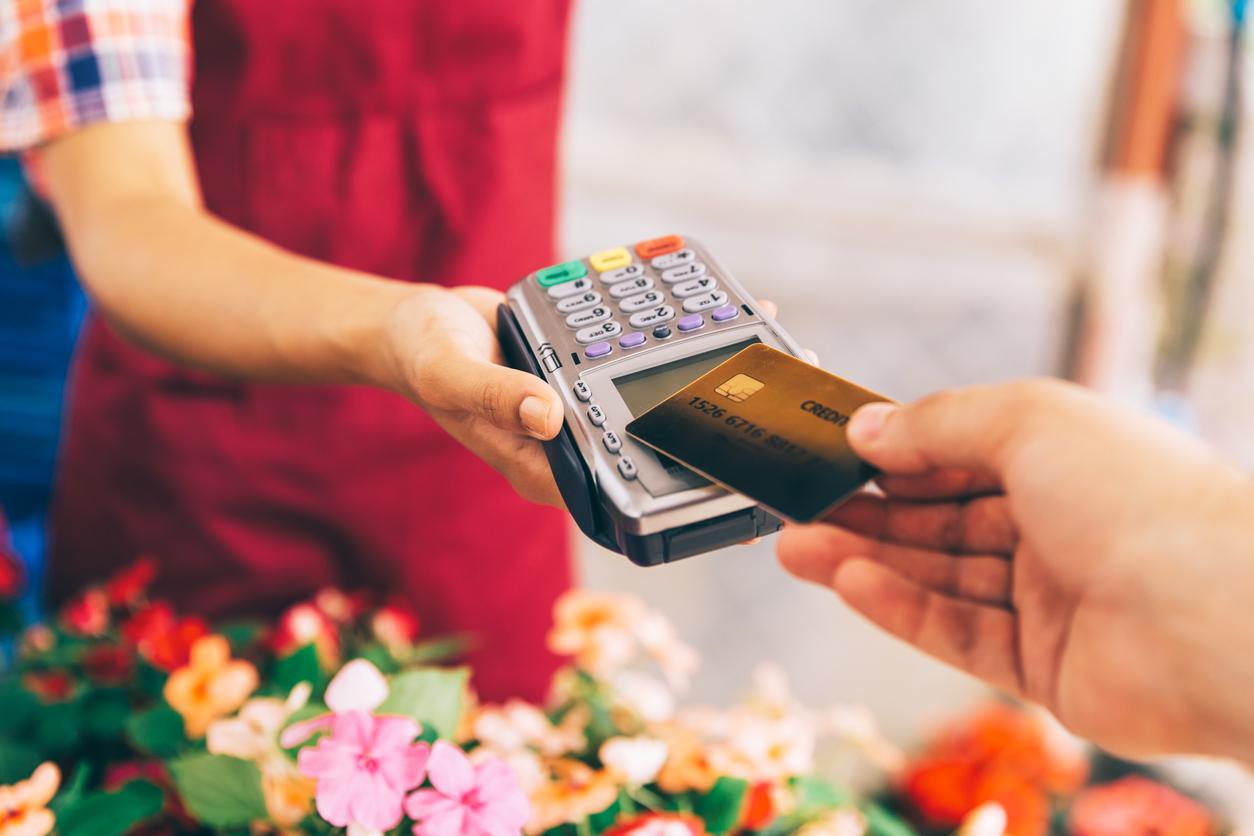Even though being a right-centre comedian accords me default outsider status, I am not in any way an edgy bloke. Consequently, I find myself surprised at just how unnerved I’ve become by the drift towards a cashless society.
I’m not yet at the stage where I’ve started using phrases like ‘the great reset’ or renaming my first son ‘Crypto’, but I have become a bit twitchy about yet another huge change concerning the fundamentals of how we live (and the way we all ignored it when we realised we could go to a restaurant with a built-in reason to not tip).
The perils around the exclusive use of contactless payments are – like most things – something I hadn’t thought about much until it affected me. I was doing a couple of gigs in Dublin. Dublin is a lovely place to do stand-up, particularly if you’re a coward like me and abandon all political material upon arrival.
I travelled there knowing I’d lost my debit card at Heathrow, but fairly confident I’d be able to just sort it out on arrival (or pay with my credit card). But here’s a thing many people don’t realise about the Irish economy: it’s not very fond of American Express cards. There’s something about that hefty surcharge which is a bit rich for their tastes. I guess you’ve got to make the money back somewhere when your corporation tax is lower than David Beckham’s credibility in the gay community.
So I decided I’d go to a NatWest and get a replacement debit card. Except they didn’t have a NatWest either. I started to wonder if Ireland was in fact a completely separate country with its own rules and culture.
Eventually I was able to find a cashpoint which dispensed euros from my credit card at a premium I’m trying to block from memory. When I got back to England my bank had failed to dispatch a new debit card, so I took out enough cash to tide me over for the next week. But spending it was easier said than done.
I was amazed at how many places will casually respond: ‘Sorry, we’re card-only now.’ It was said with almost hipsterish bravado, like refusing to trade in anything other than easily manipulated centralised currency had somehow become the new kombucha.
If we are going to do away with cash we should at least have a quick chat on the subject. We spent longer discussing whether football should have goal-line technology
That mindset is partly down to the average age of people who work in the retail and service sector. They’re young: they’ve only ever known card payments. In their eyes I might as well have been trying to buy a pint of Peroni using the barter system. Instead of holding up a £20 note I could have just as easily been brandishing a piglet, slapping its haunch to show good breeding potential.
Personally I could take this hit. knowing that at some point a debit card would be on the way. However, I wondered about people outside of the banking system. Not to mention how the hell nanas are meant to give their grandkids a fiver in their birthday card. QR codes? Sellotape a bitcoin algorithm to the back?
There are also people who simply wish to continue to conduct their affairs using cash. It’s not an unreasonable preference. Cash has been around for thousands of years. If we are going to do away with it completely, it feels like we should at least have a quick chat on the subject. We spent longer discussing whether football should have goal-line technology.
It’s a fundamental shift. There will soon be no way of operating without having your movements and affairs logged on some level. This creates an anxiety I haven’t felt before.
Over the years I’ve signed so many terms and conditions online that I live in fear Apple may one day turn up at my house and throw me in the back of a van. As they drive me, hooded, to an undisclosed location they’ll read back all the times I clicked ‘agree’ when the renewed terms included signing over the house and ‘ownership of soul’.
Like most people, I’m fairly lazy about my civil liberties, but what about the folk who do care? At a time, post Covid, when even your mad aunt on Facebook is talking about the shady world of ‘nudge units’, if the government want people to stop thinking they’re tracking their every movement, they should probably, I dunno, stop tracking their every movement.
Where I do depart from the conspiracy theorists is the reason all this is happening. When I look into Jeremy Hunt’s eyes, I don’t see a man at the vanguard of the ‘great reset’. I see a guy who looks like he cycles a lot at weekends, has a pathological fear of gluten and whose favourite TV show is Holby City. I don’t see a someone taking regular conference calls with the lizard people.
Universal contactless payments are, in all likelihood, yet another negative knock-on effect of Covid – like recessions, illiterate children and those people who look at anyone standing within six feet like they’re a sex pest. For a time, businesses were compelled to operate contactless due to hygiene concerns and many just found it was easier. It came with economic benefits too. There’s probably a brewery bean-counter somewhere who worked out the speed of contactless transactions meant that, over a fiscal quarter, a pub going cashless could sell much as many as seven more pints of beer per annum.
There will be a counter-reaction to this, though. We’re already seeing pre-paid debit cards coming into the marketplace, but the state will still be hovering above this information, like a parent who could read their teenager’s mobile phone bill any time they want.
While we obsess about illegal parties, pay settlements and ministers throwing tomatoes, there’s another thing happening which will have genuine impact on the way people organise their daily lives. Forever. If a boring right-wing centrist dad like me is getting mildly twitchy, god knows what reactions are brewing elsewhere.
Geoff Norcott hosts the weekly topical comedy podcast What Most People Think.







Comments